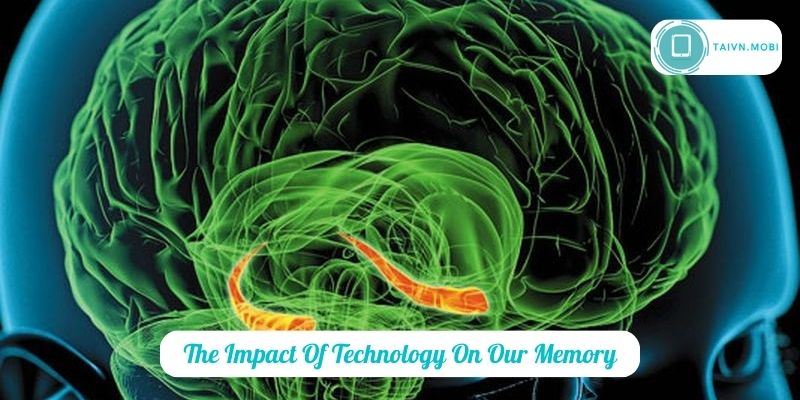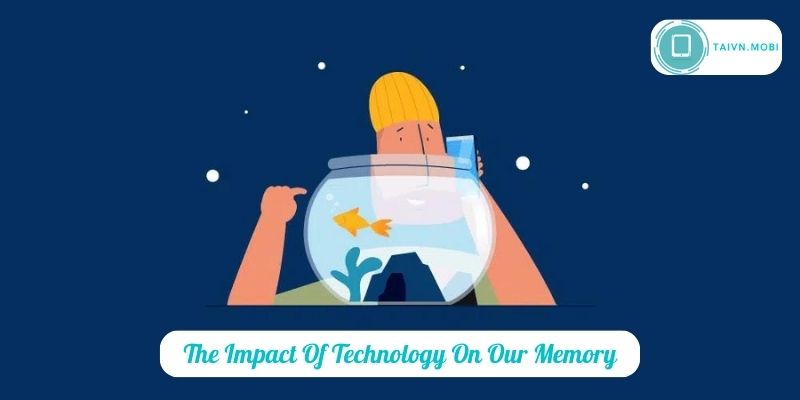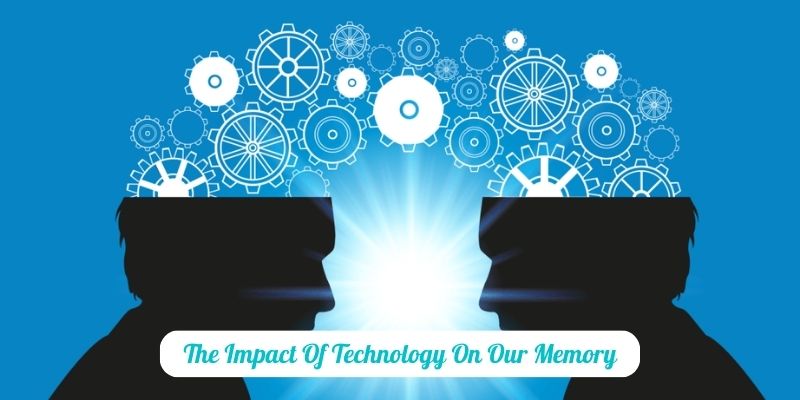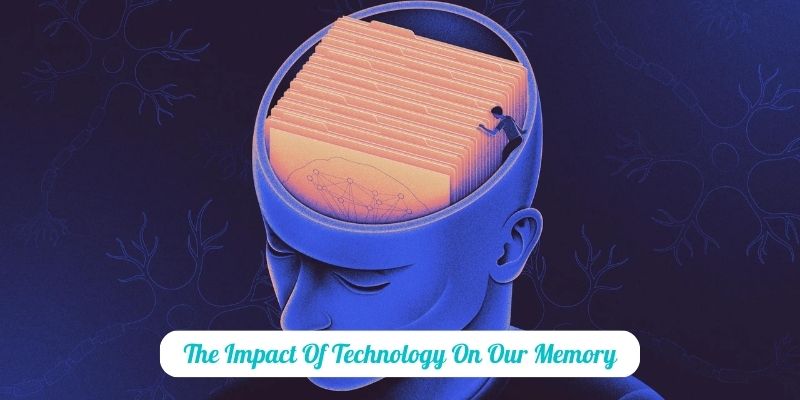Technology has revolutionized our lives, but The Impact Of Technology On Our Memory also has a profound. From reduced recall to information overload and increased reliance on external tools, the negative effects of technology on our memory are significant. In this article, Taivn.mobi explore ten key ways in which technology can hinder our memory function.
The Impact Of Technology On Our Memory: 10 Negative Effects
- Reduced Memory Recall:

Relying heavily on technology for information retrieval can lead to a decline in our ability to recall information from our own memory. We may become dependent on external devices and search engines, resulting in a weakened capacity for remembering and retaining information.
- Information Overload:
The vast amount of information available through technology can overwhelm our cognitive processes. Constant exposure to a barrage of information can make it difficult to filter and process relevant details, leading to information overload and decreased memory performance.
- Shallow Processing:
Technology encourages quick and superficial processing of information. With the ease of accessing bite-sized content and snippets of information, we may engage in shallow processing that lacks depth, critical thinking, and integration with existing knowledge. This can hinder our ability to form strong and meaningful memories.
- Multitasking and Distraction:

Technology often promotes multitasking and can be a source of constant distraction. Engaging in multiple activities simultaneously and being constantly interrupted by notifications can impair our ability to concentrate, encode information effectively, and consolidate memories.
- Decreased Attention Span:
The instant gratification provided by technology can contribute to a shorter attention span. The constant exposure to fast-paced, visually stimulating content may lead to a reduced ability to sustain attention and focus for extended periods, negatively impacting memory formation.
- External Memory Dependence:
With the ease of digital storage and cloud-based platforms, we may rely heavily on external memory sources such as smartphones, computers, and online platforms to store and retrieve information. This can result in a decreased need to rely on our own memory, potentially leading to a decline in our memory abilities over time.
- Fragmented Knowledge:

Technology often presents information in fragmented and disconnected ways. Instead of engaging in deep learning and building a comprehensive understanding of a topic, we may develop a fragmented and shallow knowledge base that lacks coherence, making it difficult to retrieve and apply information effectively.
- Reduced Cognitive Effort:

Technology’s convenience can reduce the cognitive effort required for information processing and memory tasks. As a result, we may become less motivated to engage in active cognitive processes that promote memory formation, such as elaboration, organization, and rehearsal.
- Memory Transience:
With the constant influx of new information through technology, our memory can become more transient. We may remember information for a shorter period since we know we can easily access it again when needed, leading to reduced long-term retention.
- Increased Reliance on External Tools:

Technology has led to an increased reliance on tools like calendars, reminders, and digital assistants to manage our daily tasks and responsibilities. While these tools can be helpful, they can also lead to a decreased need to rely on our memory for remembering important dates, events, and commitments.
It’s important to note that the impact of technology on memory can vary among individuals and depends on factors such as usage patterns, habits, and overall cognitive engagement. Striving for a balanced approach that combines the benefits of technology with active cognitive processes and memory exercises can help mitigate these negative impacts on memory.
How to improve the impact of technology on our memory
While technology can have negative impacts on our memory, there are steps we can take to improve its effects and promote healthy memory function:
- Active Learning:

Engage in active learning strategies when using technology. Instead of passively consuming information, actively process and engage with the content. Take notes, summarize key points, and ask questions to enhance understanding and memory encoding.
- Mindful Technology Use:
Practice mindful technology use by being intentional and conscious of your digital activities. Set boundaries, limit distractions, and allocate specific time for focused learning and memory-related tasks.
- Practice Deep Processing:
Encourage deep processing of information by seeking out comprehensive and detailed content. Engage in critical thinking, reflection, and analysis to foster a deeper understanding and enhance memory consolidation.
- Use Technology as a Tool, Not a Replacement:

View technology as a tool to augment your memory, rather than a complete replacement. Utilize digital tools such as calendars, reminders, and note-taking apps to complement your memory processes, but also strive to rely on your own memory whenever possible.
- Regular Memory Exercises:
Engage in regular memory exercises and techniques to enhance memory capabilities. These can include mnemonic devices, mental association techniques, and memory games or puzzles that challenge your recall abilities.
- Practice Retrieval:
Instead of solely relying on technology for information retrieval, practice retrieving information from your own memory. Test yourself on facts, concepts, and details related to a specific topic to strengthen memory recall and retention.
- Diverse Learning Methods:
Incorporate a variety of learning methods beyond technology. Read physical books, engage in face-to-face discussions, and participate in hands-on activities. By diversifying your learning experiences, you activate different areas of the brain and enhance memory storage and retrieval.
- Take Breaks:

Avoid excessive screen time and take regular breaks from technology. Engage in activities that promote relaxation, such as exercise, mindfulness exercises, or spending time in nature. These breaks can help reduce mental fatigue and support better memory retention.
- Prioritize Sleep:
Quality sleep plays a vital role in memory consolidation. Create a conducive sleep environment, maintain a consistent sleep schedule, and ensure you get enough restful sleep each night to support optimal memory function.
- Seek Balance:
Strive for a balanced approach to technology use. While technology can be beneficial, it’s essential to maintain a healthy balance between digital engagement and real-world experiences. Make time for offline activities, social interactions, and hobbies that stimulate different aspects of memory and cognition.
By implementing these strategies, you can harness the benefits of technology while also promoting healthy memory function and minimizing its potential negative impacts.
Conclusion
In conclusion, the impact of technology on our memory can have negative effects. From reduced memory recall and information overload to shallow processing and increased reliance on external tools, technology presents challenges to our cognitive processes. However, by adopting mindful technology use, engaging in active learning, and practicing memory exercises, we can mitigate these negative effects and promote healthier memory function in the digital age.
